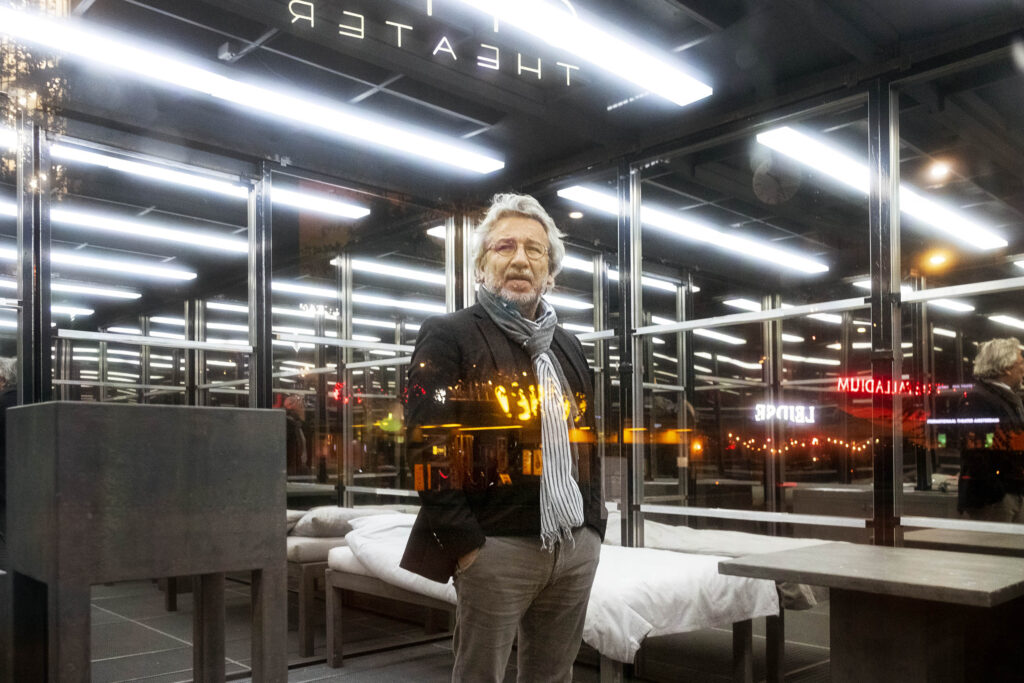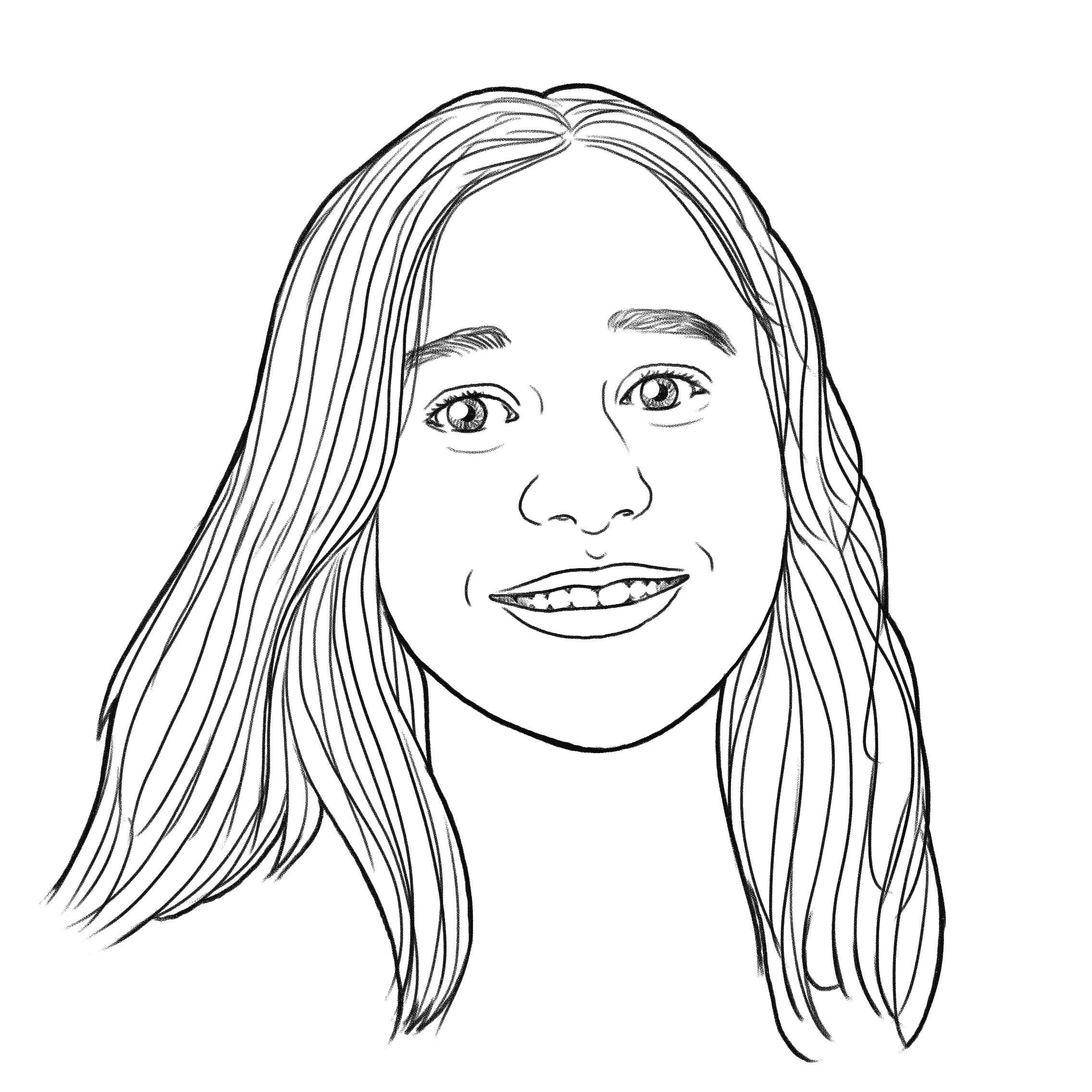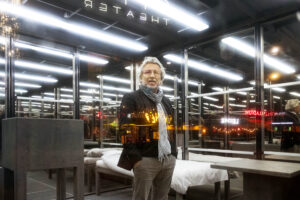Are We Europe talked to Turkish journalist Can Dündar, the previous editor-in-chief of the opposition journal Cumhuriyet. He fled his home country in 2016 after being sentenced to imprisonment because of his writing about the Turkish government’s sales of weapons to Syrian fighters. As a pioneer of the fight for press freedom, Can Dündar is an inspiration for journalists worldwide.
How has your experience been living in exile?
I feel like I have two missions. One is that the media in Turkey is almost fully controlled by the government now. We have a responsibility to send trustworthy news to Turkey from afar, as an exile media. We are printing magazines, publishing books, broadcasting radio, sending podcasts, and using YouTube to let people know what’s going on and what’s censored in Turkey. The second mission is to explain what’s going on in Turkey to Europe and to give Europeans truthful information. Turkey is not only Erdogan. There’s another Turkey, and we need to let them know. Berlin is my base to, at least, try to balance the information given by the Turkish government.
A lot of people of Turkish origin came to listen to your talk at De Balie. How did that feel for you?
Great, really. They made me feel at home—that I’m not alone. That’s important because when you are alone, it can break you, your heart and make you struggle. But when you’re working with a huge community, that’s a good feeling. It shows that solidarity, as always, makes people happy and more resistant.
How do you define the truth, and how do you make sure that you’re giving out trustworthy information?
Truth is kind of easy. You sit there, I sit here [ed. there’s a pencil on the table between us]. I can only see this side of the pencil and you see only the other side of it. And when you describe it, you can only say what you see. So when you try to explain it, I cannot see it fully. I know it’s a tool, but I can’t see it fully. That’s why my explanation of your side will be a bit weaker than yours. To define the truth, you should know the whole picture. Unfortunately, the [Turkish] government is trying to convince us that the truth is only on their side. They want us to believe that. We are trying to say that there’s another truth, on the other side of the pencil, and we need to cover the whole scenery to explain what is going on. So this is our struggle. And it’s not only ours: many journalists all over the world are trying to do this. We need more journalists. We need more courage. We need more opportunities to investigate. And we need more investment in media.
The internet—and social media—is becoming increasingly ingrained into our societies. Can it be both a threat and a tool for journalists?
As you said, social media has two faces. One is very user-friendly for us. It makes our profession easier, more global. We have more interaction among colleagues, and the amazing opportunity to reach the sources or sometimes hack the sources to reveal the truth. It’s a huge, huge opportunity. I’ve been working as a journalist for the last 40 years, and now is the most fruitful period, thanks to social media. But at the same time, it’s a tool for the enemies of the truth, for government propaganda, for troll armies, for spreading hatred or racism. Of course, you cannot fight against the internet, but you have to fight against its misuse.
How can journalism push people to take action?
It’s already started. Nowadays, people understand better what a lack of information means and why information is important for them. Imagine a country, like Turkey, where people do not have access to information that concerns them. For example, there was a bombardment in a town where government-controlled arms trafficking was going on. Nobody knew that they were illegally smuggling arms into Syria. And this bombing was not a terrorist attack but the consequences of a secret agreement. People have the right to know why they lost their kids. When they understand this, they will ask for more information. We need to show them that this is not about journalism. It’s not about the government. This is about them. Journalists should be brave, investigative and organized to deliver the truth to the people. This is also the time for people to get organized—to ask for uncensored, trustworthy, information.
What are the greatest threats to press freedom and democracy today?
Oppressive governments first. Look at China, look at Russia. Look at Poland and Turkey. They want to hide the truth and be the only source of information. But being silent also means taking sides with the bad guys. I’m talking about the countries that are supposed to be on the side of the truth and democracy but who, but for some reason, step back and just watch what’s going on and let the bad guys do what they want. I’m talking about Europe and the United States partly. There’s no neutrality here, I’m afraid. Europe should take sides and support freedom fighters all over the world, instead of just looking from afar and saying, ok, we’re not intervening in anything. Come on, you must intervene. You cannot just watch while the world is burning.
You made a life-size copy of the Turkish prison cell you were held in solitary confinement in and now put it on display here around Europe. Why?
From the first day I came to Germany, I’ve been trying to explain the extent of human rights violations in Turkey to the German authorities. I’ve been asking them to do something about it—go to Turkey, visit those prisons. If you are not allowed to visit the families, go to a local newspaper under threat, visit their trade union. Do something, show solidarity. But nobody cares. Chancellor Merkel visited Turkey at least ten times in the past five years. She didn’t visit a single opposition leader or any family member of an imprisoned journalist. It shouldn’t be so difficult, you know?
So then I had this idea. I said, OK if you don’t go to prison, I will bring the prison to you. I made a copy of it and put it in Berlin, and it’s just a hundred meters from Chancellor Merkel. And I told them this: now you can come in, it’s so close to you. Visit it and feel it, and then you can understand what’s going on in Turkey.
How did people react?
They liked the idea. They visited the cell. It’s about the evidence of creativity, how painters painted, how writers wrote, how musicians made music, how politicians get their messages outside, how journalists published papers from within the cell. I just want to show the importance of resistance and how creativity cannot be stopped. Under any conditions. My idea is to take the exhibition to the European Court of Human Rights or the European Council in Brussels. I will.
Your art installation wants to shake Europe awake. Why do you think it’s paralysed in the first place?
First of all, they rest in peace. You know, they’re happy. I mean, look at that [ed. points to the outside, on Leidseplein, where there is a life-size reproduction of the Turkish prison cell he was once held in]. There’s a cell in the middle of the square but people just walk around it. They’re happy. They have their job. And they are told: “This is your life. Others are having their life—it has nothing to do with you.” Others who, unfortunately, live in Turkey and not in Germany or The Netherlands. But come on, that is not the case. Take global warming. You cannot say this has nothing to do with people in The Netherlands or Germany. It’s a global problem. And if you don’t care about it, it will harm you. That is the same with human rights, torture, lack of freedom of expression. If those rights are threatened in one part of the world, it should be your business to defend those values.
Do you think that the role and responsibility of a journalist differ based on where they are?
Many European colleagues tend to believe that there’s only one type of journalism, with some rules and regulations. But it’s not that easy, I’m afraid. For them, it’s easy to say that what we are looking for is objectivity, distance, sources. And leave your feelings out of your work. But what if your own house is burning and the rules say that you can’t get in? Just take the picture, send it to your magazine and report about it. What if your family members are inside? You have to jump in and try to save them or carry some water, right? So, of course, I would be happy if I was a journalist in Amsterdam or Finland looking at the burning house from afar and writing about it. It’s nice. But come on, this is our house that’s burning, and we have to do something about it.




